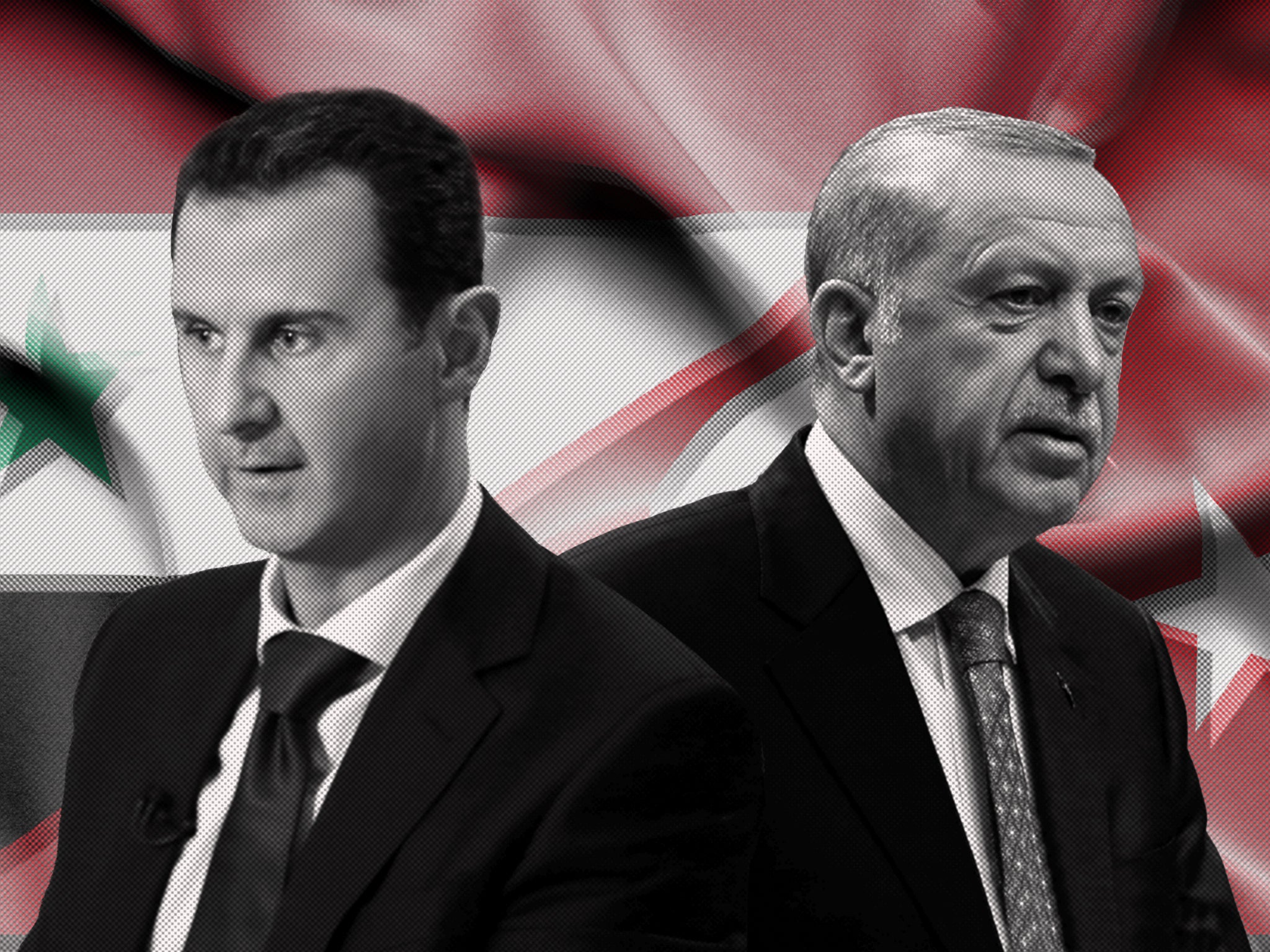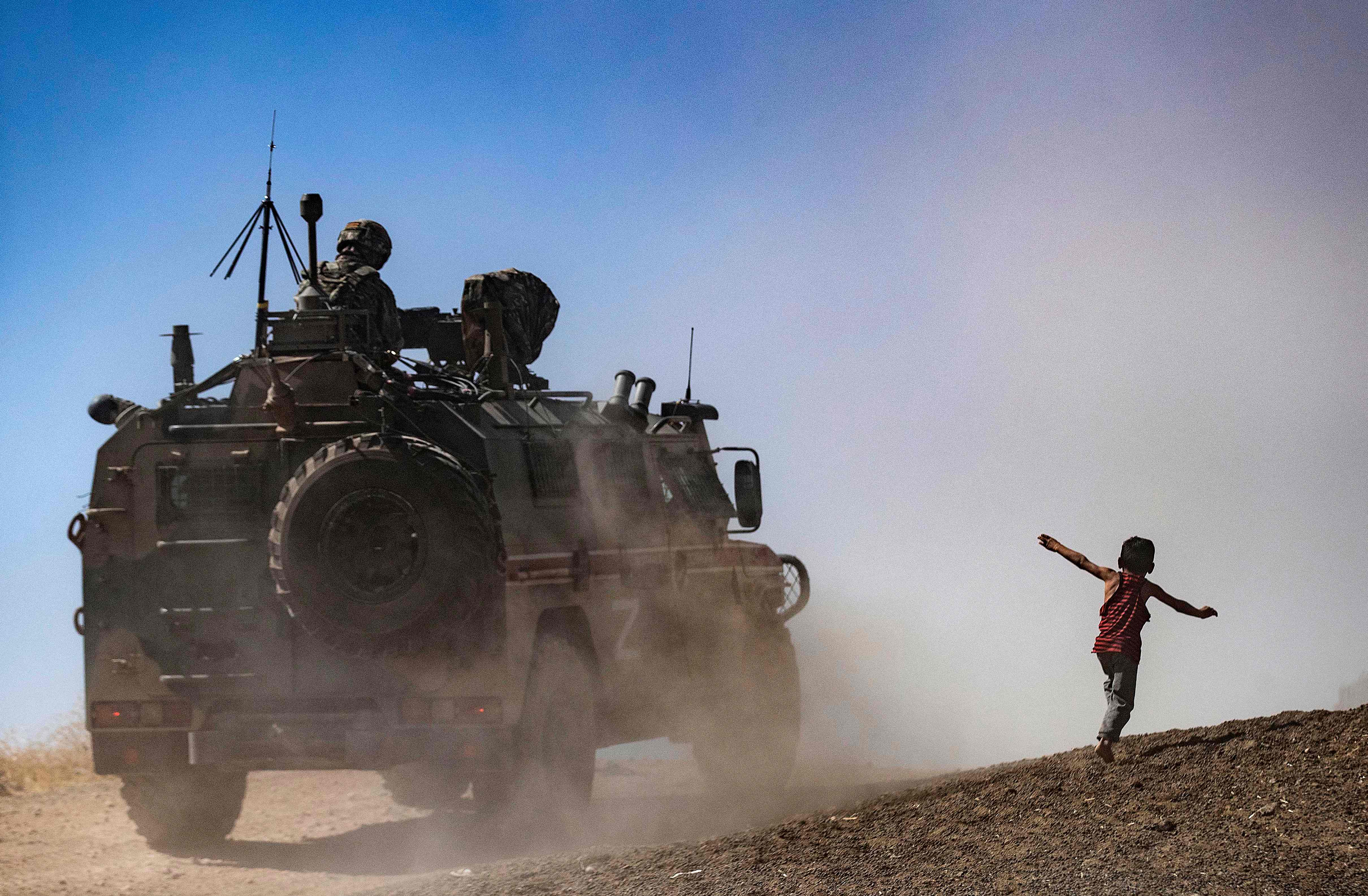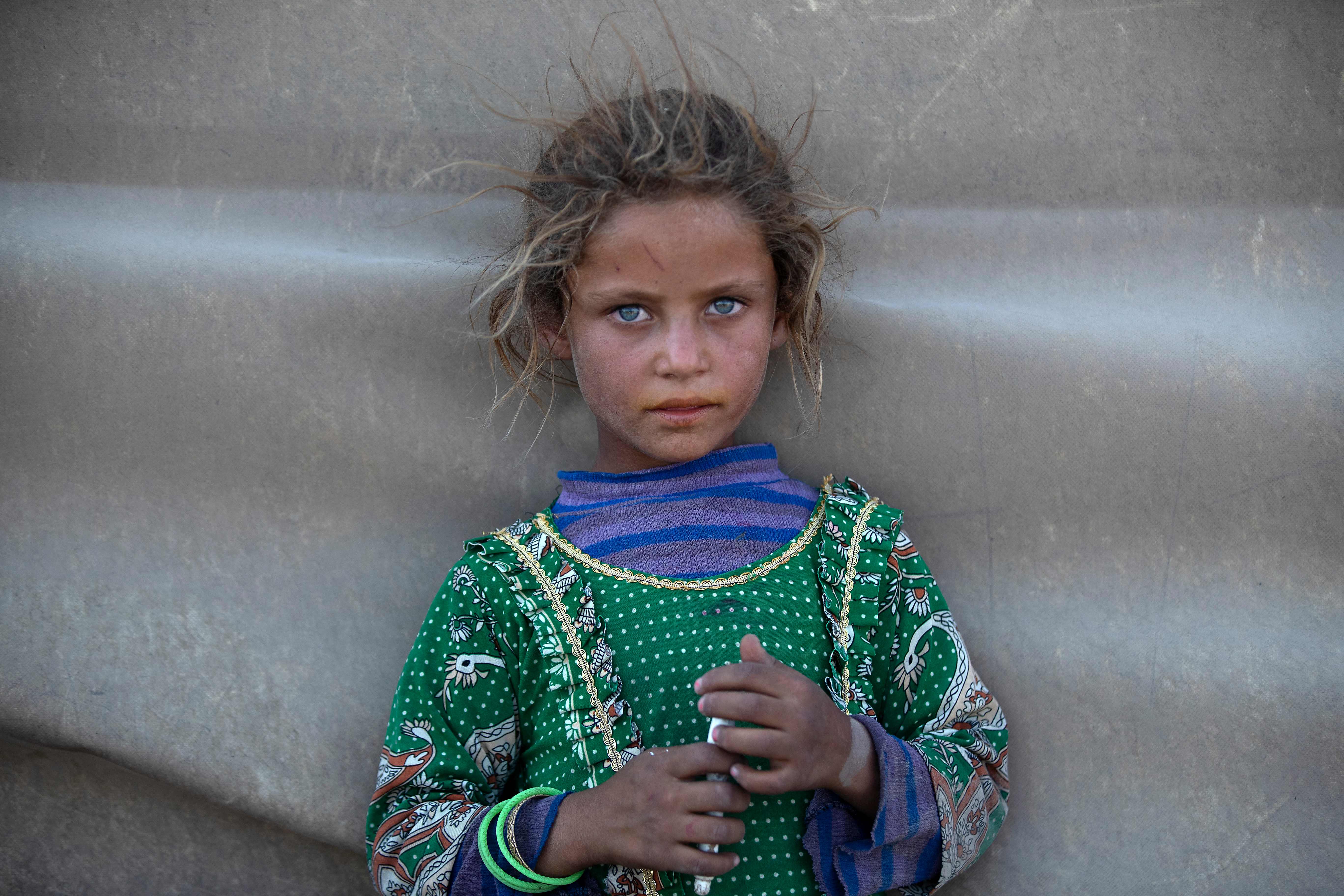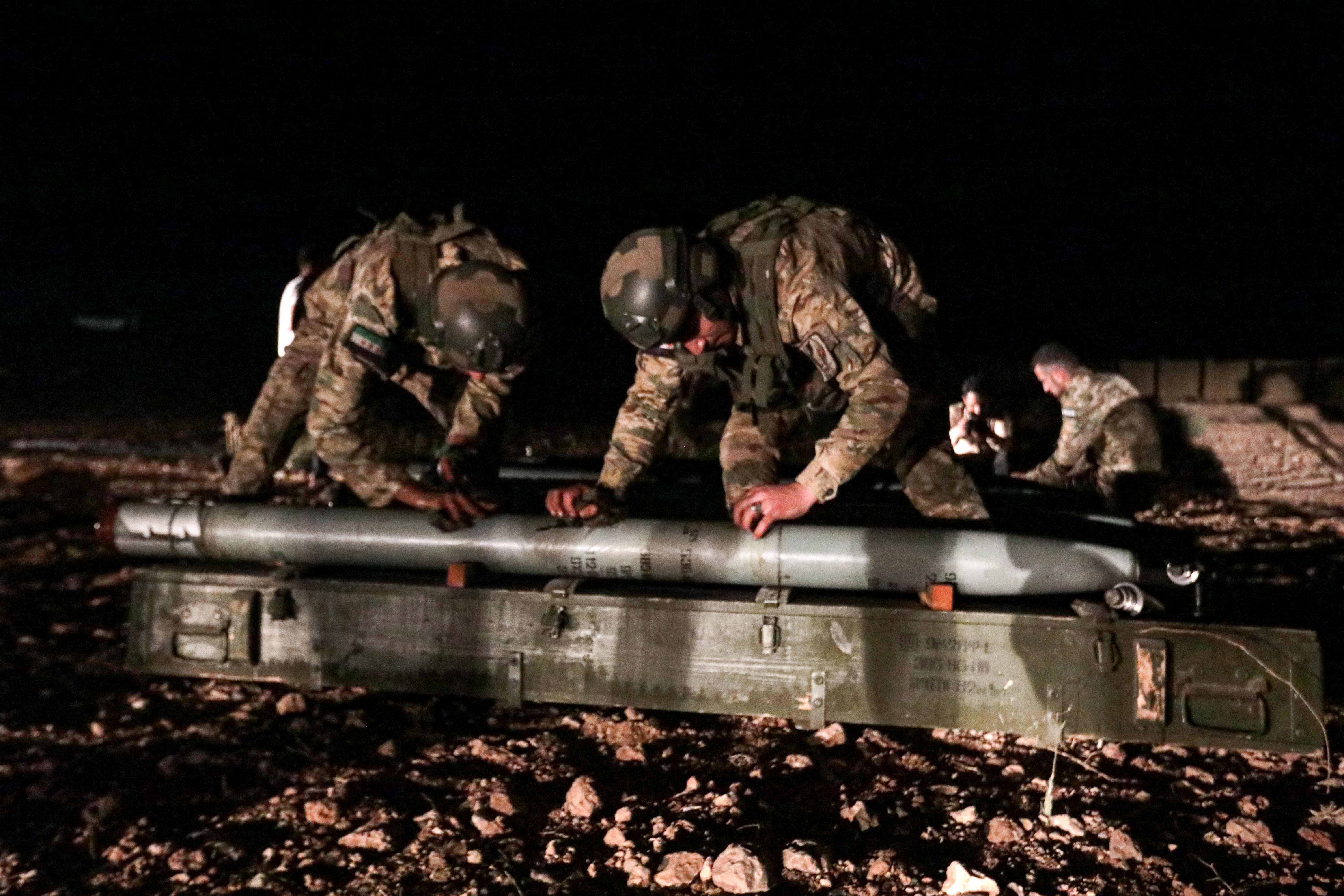Why Turkey’s Erdogan and Syria’s Assad might need each other again
Turkey’s president emerged from a meeting in Russia with closer Kremlin ties and fresh rhetoric on the Assad regime. Could a reconciliation be on the cards, asks Borzou Daragahi


Much of the rest of the world was zeroed in on the war in Ukraine. But when president Recep Tayyip Erdogan flew to meet president Vladimir Putin in the Russian Black Sea resort city of Sochi last month, he had one top item on his agenda: getting his host to greenlight his military plans against Kurdish fighters in northern Syria.
Few know what the two men spoke about on 5 August during nearly four hours of closed-door meetings inside the walls and upon the lush green grounds of the Bocharov Ruchey palace, the 1950s summer residence built for the leadership of the Soviet Union. But as often happens after long meetings between Putin and other world leaders, Erdogan emerged from the meeting a changed man.
After more than 11 years of openly agitating against the regime of Bashar al-Assad and backing his armed opponents, he began spouting a starkly different message on Syria, calling for reconciliation and dialogue with the Damascus leadership.
“The opposition and the regime in Syria need to reconcile,” Erdogan told reporters some days later during a separate trip abroad. “Turkey’s goal in Syria is not to defeat Assad but to find a political solution, and calling for “political dialogue or diplomacy” with the Damascus regime.
For many, the new approach was a shock.
Turkey has been the main backer of the Syrian factions that have fought a desperate decade-long war against the Damascus regime and has clashed militarily numerous times with Assad’s forces.
Erdogan turned against Assad after he launched a violent military campaign to crush both peaceful and armed opponents who rose up against the Russian- and Iranian-backed Damascus dictatorship in 2011. Now there are whispers that Erdogan and Assad could meet on the sidelines of the Shanghai Cooperation Organisation summit this week in Uzbekistan.
It has happened before. Turkey in recent months has launched a reboot of its foreign policy, and made amends with numerous former enemies. But Syria may be different. Facts on the ground complicate any quick rapprochement between Turkey and Syria, and a previously unthinkable photo op like the ones between Erdogan and Saudi heir to the throne Crown Prince Mohammed bin Salman seems unlikely.
“I don’t expect any kind of reconciliation and I don’t expect normalisation,” says Omer Ozkizilcik, an independent foreign policy and security analyst based in Ankara.
“A picture of Erdogan and Assad together is impossible. That said, it will not mean that Turkey will not make statements and try to call for the normalisation of relations, But I don’t expect diplomatic ties. It would be too abrupt.”
Though Syria’s war has simmered down, the dangers of the conflict persist. On Wednesday, the United Nations warned that Syria‘s bloody conflict is at risk of escalation after several frontlines across the country flared up in recent months.
“Syria cannot afford a return to larger-scale fighting, but that is where it may be heading,” said Paulo Sergio Pinheiro, chair of the UN’s Syria commission.

It claimed there had been an increase in “grave violations of fundamental human rights” over the past six months, including fighting in the country’s northeast and northwest that left dozens of civilians dead and restricted access to food and water. UN agencies have also warned of a cholera outbreak in Syria that could spread, calling for urgent action.
The UN also documented more Russian aerial bombardments over opposition-held areas.
“We had an idea at some point that the war was completely finished in Syria,” Pinheiro said, but adding the violations proved this was not the case.
‘No to reconciliation’
Reconciliation between Damascus and Ankara would carry broad implications for the West and the Middle East. It would potentially draw Nato ally Turkey even closer into Moscow’s orbit. It could complicate the continued presence of US military personnel in northern and eastern Syria. It would add to the woes of millions of Syrians opposed to the Assad regime and forced into exile.
Turkey’s shift prompted outrage among Ankara’s Syrian clients, who control much of northwest Syria. Protesters burned Turkish flags after Turkish foreign minister Mevlut Cavusoglu admitted he had met in 2021 with his Syrian regime counterpart Firas Mikdad on the sidelines of a conference in Belgrade.
“No to reconciliation,” they chanted. “Revolutionaries can never be wiped out.”
The main obstacle to any kind of reconciliation is de facto Turkish control over parts of Syria. Over Damascus’s vehement objections, Turkey effectively maintains its own protectorate over several regions of the north of the country and retains strong influence over Idlib province, which is ruled by Hayat Tahrir al-Sham, a well-armed opposition group with roots in Al Qaeda.
“Ankara is quite clearly lofting trial balloons for how it sees a potential rapprochement with Damascus,” says Aaron Stein, of the Foreign Policy Research Initiative. “Turkey essentially owns northern Syria, and so we can ruminate all we want, but the actual mechanics of turning back over to Damascus territory Ankara controls and subsidizes will be extremely difficult.”
Turkey’s modified stance toward the Damascus regime could be a ruse meant to win Ankara the Kremlin’s green light to pulverise the Kurds who have taken control of northeast Syria. Turkey views the Kurdish self-rule experiment, led by pro-PKK Kurds as a graver security threat than the regime in Damascus.
“Russia keeps telling Turkey it needs to solve its Kurdish problem via Damascus,” says Ozkizilcik. “Turkey tried to reach out, and the first statement from Damascus was that they consider Turkey the main sponsor of terrorism and expect it first to withdraw from Syria.”
Above all, Erdogan’s shift is rooted in domestic political calculations ahead of the 2023 presidential elections, in which AKP opponents are making migration a key issue. Turks are fed up with millions of Syrian and other refugees settling in the country, and Erdogan’s government has been blamed for letting this happen. The president is seeking to blunt the opposition’s criticisms of his migration by essentially co-opting their proposals to reconcile with Assad.
“The government was seen as favouring the Syrians to be in the country,” says Dilek Gursel, an independent foreign policy analyst specialising in Turkey and the Middle East. “This is in preparation for elections next year by openly saying the same thing as the opposition.”
Anti-Americanism and anti-Westernism may also help Erdogan domestically in a nation that feels betrayed by Washington for its support of Syrian Kurdish rebels and by Europe for its rejection of its application to join the European Union more than a decade ago.
“The US will suffer the consequences of pushing Turkey when it is left alone with a crippled Nato,” the columnist Hakki Ocal wrote in the pro-government Milliyet newspaper on 12 September. “It is not Greece, Ukraine, or the PKK/YPG terrorists they have been training in Syria that have provided Nato with its current status as a strong organisation. Nato is strong only with a fully-equipped Turkey.”
Turkey has stunned its longtime allies in recent years by boosting ties with erstwhile rivals such as Iran, Israel, and Russia while alienating fellow Nato members such as the United States and France.

In recent days, Turkey has turned up the heat on Greece, a longtime rival, while making amends with Armenia, with which it has had a tricky past. Many are flummoxed by Turkey’s recent moves. Some speculate that Erdogan is cycling through various foreign policy gambles in an effort to gain some victories ahead of 2023.
“It’s Erdogan and a bunch of dudes,” says Sinan Ciddi, a professor specialising in Turkey at the Marine Corps University in Virginia. “And they literally make it up as they go along.”
Even some of the players and pundits closest to the presidential palace in Ankara have little notion of what Erdogan is thinking and what was discussed during his meeting in Sochi with Putin. There has been tantalising speculation.
Among those who attended the summit was Ramzan Kadyrov, the Kremlin’s controversial enforcer in Chechnya, and the likely culprit behind a 2021 plot to assassinate a high-ranking Chechen opposition figure sheltering in Turkey. Perhaps the summit was meant to rid the Ankara-Moscow relations of lingering problems and forge a broader partnership.
During the meeting, Ankara and Moscow committed to trading in local currencies, potentially hampering Western efforts to isolate Russia over its invasion of Ukraine. Analysts also speculated that Russia had shifted up to $10bn (£8.5bn) in cash to Turkey’s Central Bank reserves ahead of the Sochi meeting.
And there are other expanding areas of cooperation. Turkey hopes to revive its economy with cheap Russian energy. And Turkish exports to Russia have reached a record $738m.
“Turkey-Russia ties have grown in many areas, from nuclear energy to tourism,” Russian Senator Andreyi Klimov told Sputnik during a visit to Turkey. “Our states established unique political relations. Our leaders discuss very important topics in their meetings and solve them.”
Russia’s consulate to Istanbul recently hosted a three-day business conference.
“Western companies’ removal from the Russian market following the sanctions caused a vacuum,” the head of the Russia-Turkey Business Council, Izzet Ekmekcibasi, reportedly said. “We bring Turkish firms to fill in that vacuum.”
A month after Sochi, Erdogan was spouting Kremlin talking points. “I can clearly say that I do not find the attitude of the West towards Russia right. Because there is a West that follows a policy based on provocation,” he said, according to Turkey’s state news agency. “I say to those who underestimate Russia, you are doing it wrong. Russia is not a country that can be underestimated.”

While Erdogan could be playing Putin into greenlighting a Syria operation and as a way to boost the Turkish economy, the Kremlin could also be seducing Turkey closer into its orbit.
“Putin probably considers Erdogan to be one of the leaders against whom he is in the strongest position and someone he could pressure,” wrote Osman Sert, in the opposition paper Karar.
Ciddi suggested that Erdogan was acting out of desperation, turning to Putin on Syria and to revamp his economy because he has been spurned by other western allies, who sharply disagree with him on the threat posed by Syrian Kurds as well as a number of other major issues.
“He had nowhere else to turn,” says Ciddi. “Erdogan essentially can’t get what he wants without sitting down face to face and mending ties. He has no choice but to recognise Assad as the legitimate ruler of the country and hopefully work with him to achieve his goals. He has no choice. Still, a lot of people are left wondering and angry.”






Join our commenting forum
Join thought-provoking conversations, follow other Independent readers and see their replies
Comments